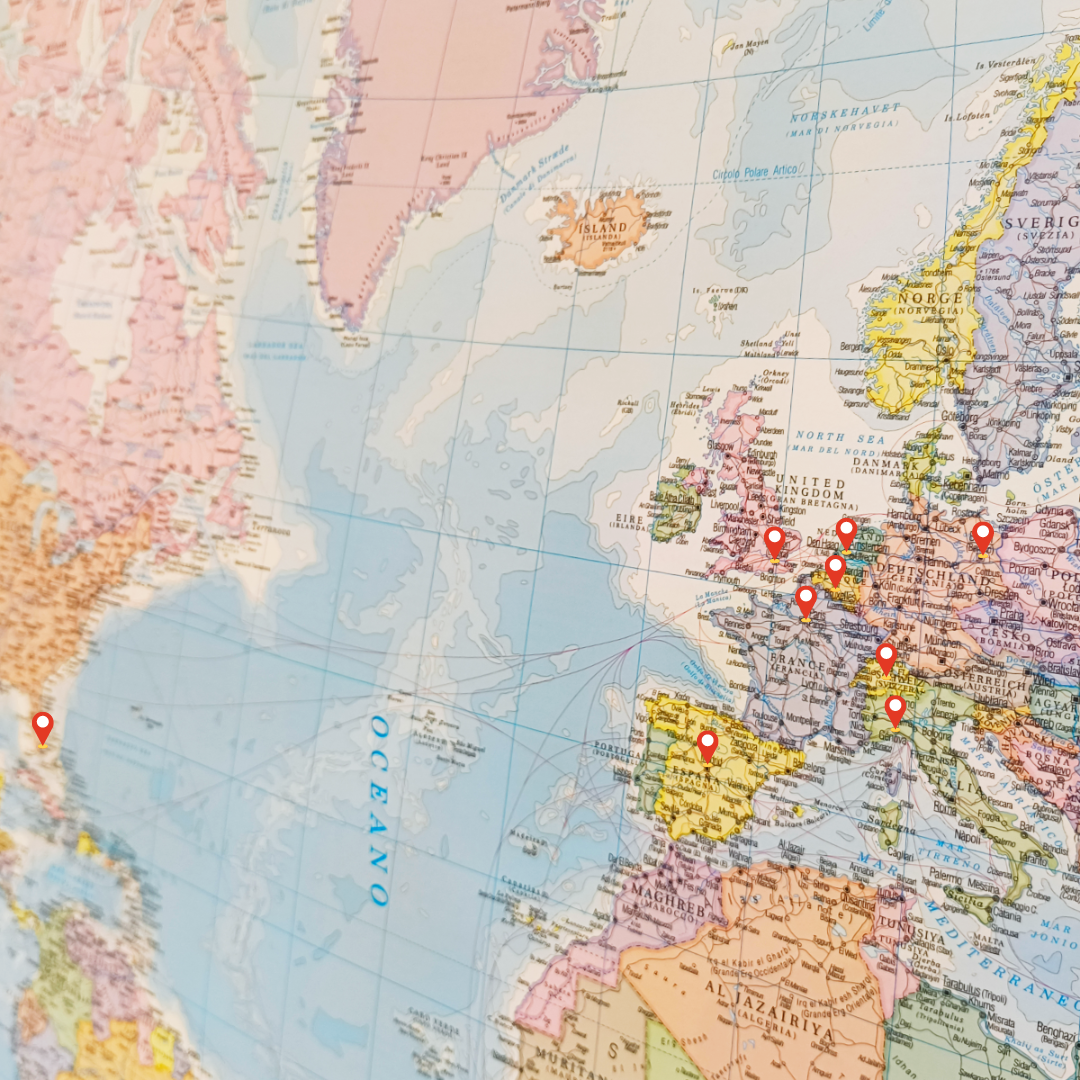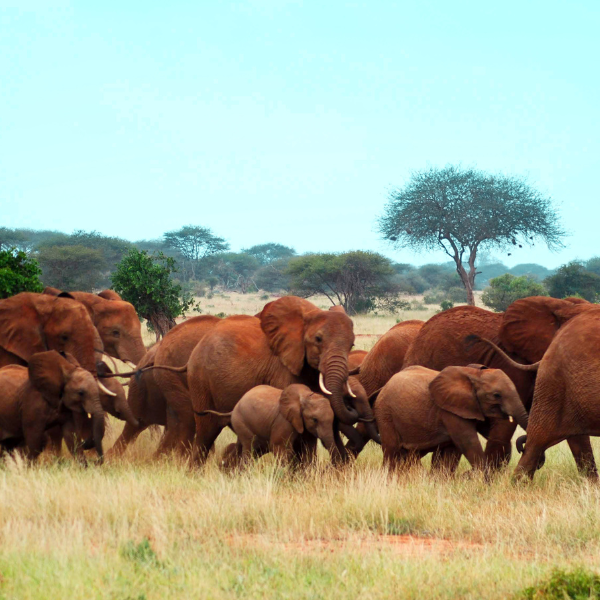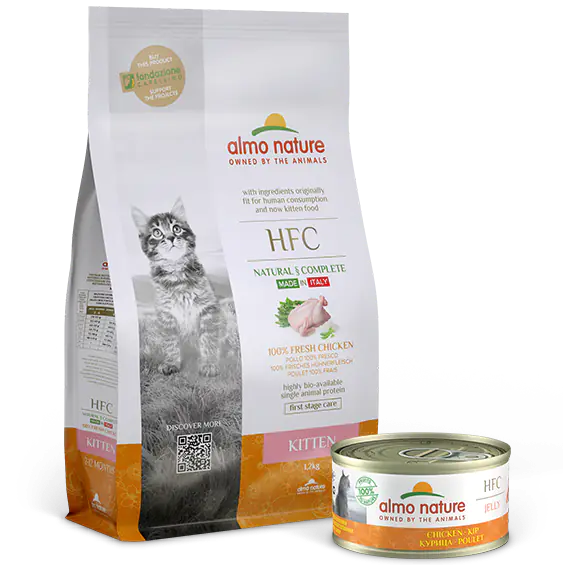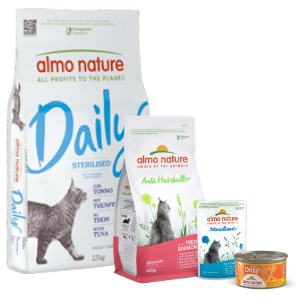Cat nutrition advice
Wet food or kibble?
Cats
The three basic elements of cat well-being:
Proper calorie intake
Proper hydration
Quality and origin of ingredients
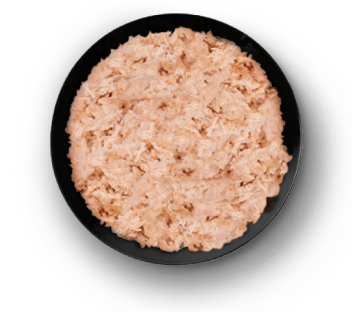
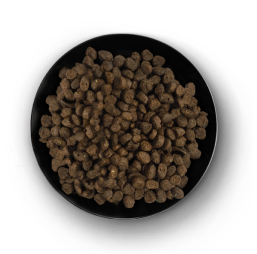
to supplement the required daily intake.
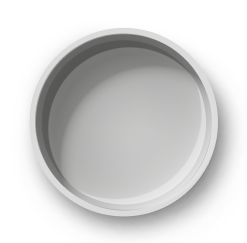
If your cat is not consuming enough water, the amount of wet food should be increased and the amount of kibble decreased accordingly: 60g HFC wet food is equivalent to about 18g of kibble, thus reducing the daily water requirement by about 50ml.
The amounts specified are approximate quantities and refer to HFC wet food and kibble. Adjust the above advice to both your cat's actual weight and daily level of activity and the temperature of their environment.
Despite cats usually only consuming little water naturally, their bowl should be refilled at least twice a day.
Unlike with dogs, you should never mix dry food with wet food with cats.
Wet food should be split between morning and evening meals. Small amounts of kibble must always be present in the bowl as cats tend to eat small, frequent meals, also at night.
For a complete diet, it is important to differentiate the sources of animal protein: therefore alternate red meat with white meat and fish.
It takes the right amount of time to make a full transition
Switching from one food to a new one, for instance, from kibble with dehydrated meat or fish to kibble with 100% fresh meat or fish, calls for a slow and gradual transition.
To allow intestinal flora the time to adjust, gradually incorporate an increasing amount of the new food into your pet's current diet, over 7 days, until you complete the transition to 100%.
Kibble is a complete food. HFC-quality kibble provides up to 98.73% high-quality, highly digestible protein (Journal of Veterinary Science & Research). Wet food has an essential moisturising function since cats do not usually drink much water. Besides its high-moisture content, HFC wet food also provides large amounts of high-quality, highly digestible protein.


-1.jpg)

